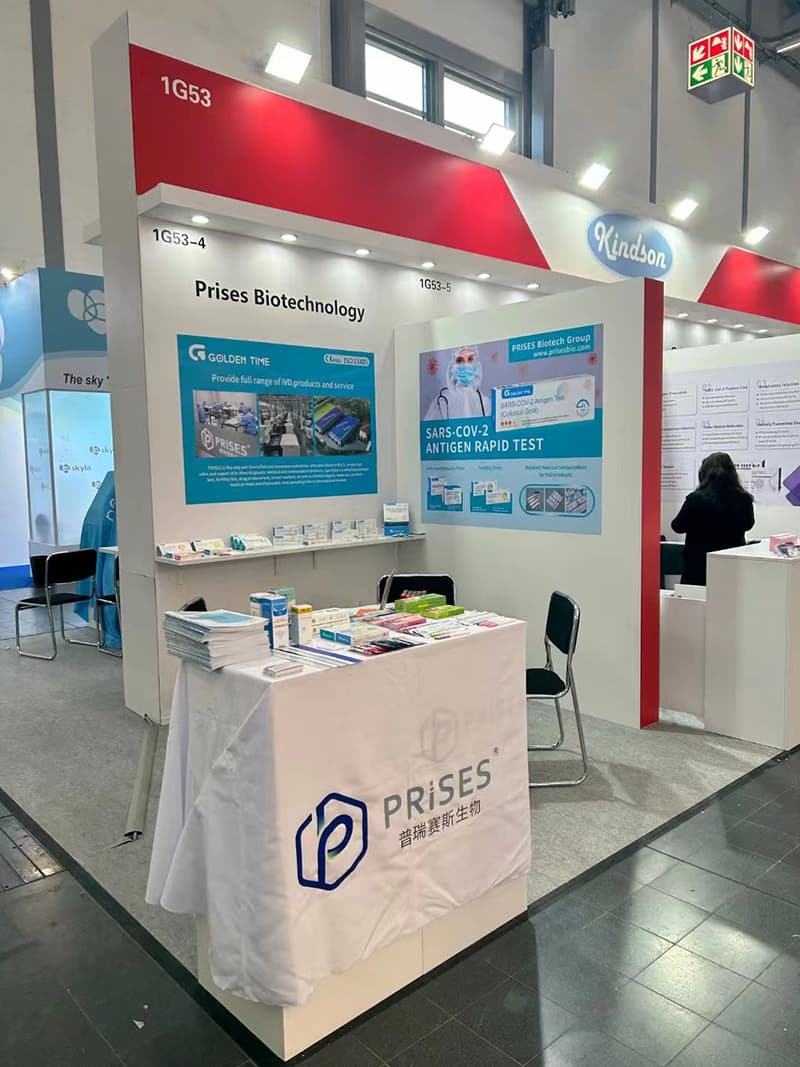Dec . 04, 2024 14:07 Back to list
Find Reliable Manufacturers for Syphilis Self-Test Kits Online Today
The Growing Demand for Syphilis Self-Test Kits Understanding the Market and Innovators
In recent years, there has been a notable shift in the landscape of sexual health testing, particularly with the rise of self-test kits for sexually transmitted infections (STIs), including syphilis. With syphilis rates on the rise in many parts of the world, the demand for convenient, accessible, and private testing solutions has become increasingly important. This has led to the emergence of various manufacturers specializing in syphilis self-test kits, transforming how individuals approach sexual health.
Understanding Syphilis and the Need for Testing
Syphilis is a bacterial infection caused by *Treponema pallidum*. It is primarily transmitted through sexual contact and can have serious long-term health consequences if left untreated. Symptoms can vary depending on the stage of the infection and may include rashes, sores, and fever. In its later stages, syphilis can lead to severe health issues, including neurological problems and increased risk of HIV infection.
Given the often asymptomatic nature of early-stage syphilis, regular testing is crucial for sexually active individuals, especially those with multiple partners. Traditional testing methods often involve clinic visits, which can deter individuals from getting tested. Herein lies the appeal of self-test kits, which provide a way for individuals to take control of their sexual health in a private setting.
The Rise of Self-Test Kits
The market for self-testing kits has expanded significantly, driven by the need for privacy, convenience, and immediate results. Manufacturers of syphilis self-test kits have recognized this shift and have developed products that allow users to test themselves with a simple blood or oral fluid sample. These kits are designed to be user-friendly, with clear instructions and easy interpretation of results.
One of the notable advancements in this field is the incorporation of digital technology. Some self-test kits now offer mobile applications that guide users through the testing process, provide educational resources, and even connect them to healthcare professionals if they receive a positive result. This blend of technology and traditional testing not only enhances user experience but also reinforces the importance of seeking medical advice following a positive test.
Key Manufacturers in the Market
Several manufacturers have emerged as leaders in the market for syphilis self-test kits. Companies specializing in sexual health products, diagnostics, and consumer health have all begun to invest in the development of these kits. Some of the well-known brands include
buy syphilis self test kit manufacturer

1. OraSure Technologies Renowned for their oral fluid testing products, OraSure has expanded its offerings to include self-test kits for various STIs, including syphilis. Their kits are designed to be easy to use and provide results in a short period.
2. bioLytical Laboratories This Canadian company specializes in rapid diagnostic tests. They have developed a syphilis self-test that enables users to obtain results within minutes, reflecting the growing demand for quick and reliable testing solutions.
3. Everlywell Known for its direct-to-consumer health testing kits, Everlywell offers a wide array of STI tests. Their syphilis test kit is part of a comprehensive panel that allows users to test for multiple STIs at once, making it an attractive option for those looking for convenience.
4. Testing.com Although not a manufacturer, Testing.com plays a significant role in connecting consumers with reputable test kit manufacturers. They provide valuable information about various self-test kits, guiding consumers in making informed decisions about their sexual health.
Challenges and Considerations
While the demand for syphilis self-test kits is growing, several challenges remain. Ensuring that users fully understand how to correctly use these kits is paramount for accurate results. There is also a need for robust educational campaigns to inform the public about the importance of regular testing and what to do with test results.
Furthermore, while self-test kits offer convenience, they should not replace regular check-ups with healthcare professionals. Individuals who test positive for syphilis must seek a healthcare provider for confirmation and treatment to manage the infection effectively.
Conclusion
The increasing accessibility of syphilis self-test kits marks a significant step forward in public health, empowering individuals to take responsibility for their sexual health. As manufacturers continue to innovate and improve the quality and usability of these kits, it is crucial to balance accessibility with education and follow-up care. This holistic approach will facilitate early detection and treatment, ultimately contributing to the reduction of syphilis and other STIs in the population. The future of sexual health looks promising with the continued development of user-friendly testing solutions.
-
Highly Accurate hCG Pregnancy Test Strips - 5 Min Results
NewsAug.02,2025
-
Premium Empty ABS Plastic Cassettes: Durable & Lightweight Storage
NewsAug.01,2025
-
Accurate Cocaine (Coc) Rapid Test Kit | Fast & Reliable Detection
NewsJul.31,2025
-
Accurate HCG Pregnancy Test Strips | Fast Home Use Kit
NewsJul.31,2025
-
Reliable Early Pregnancy Test Kit Supplier - Multi Plastic Cassette Options
NewsJul.30,2025
-
Transferrin Rapid Test Cassette – Reliable Tumor Marker Detection
NewsJul.29,2025

